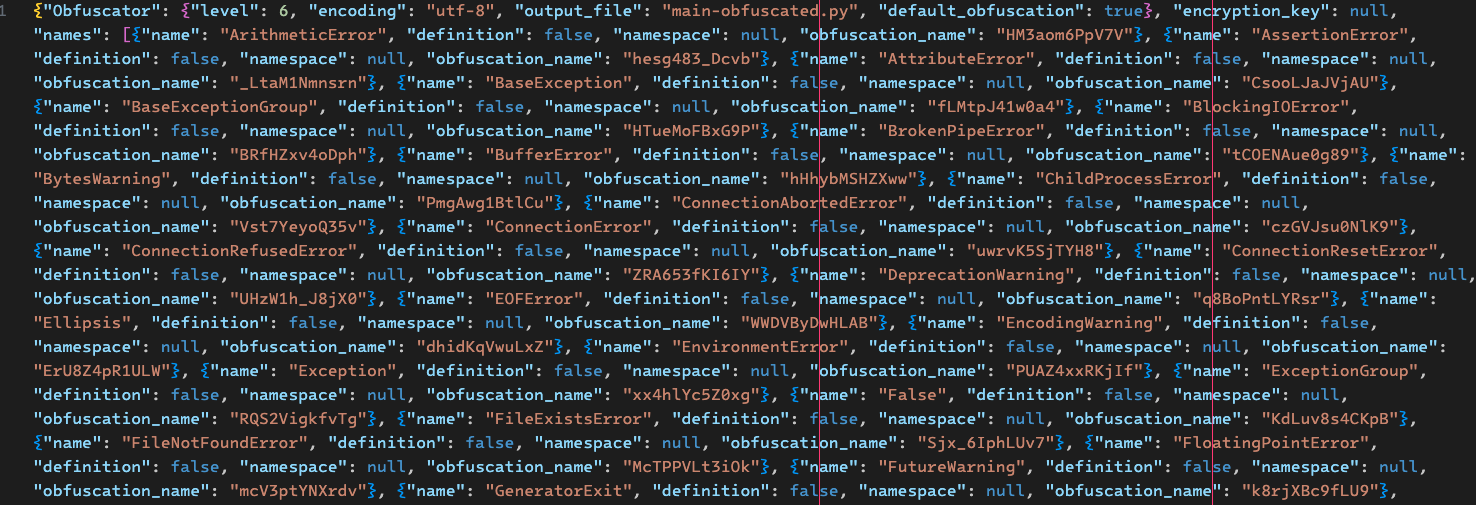1. Topic
defende the source code in commercial distribution.
- How do you protect Python source code?
- Use Compiled Bytecode
- Executable Creators (or Installers)
- Software as a Service
- Python Source Code Obfuscators
- Which language?
- nodejs
- python
2. Python
- sourcedefender(commercial): SOURCEdefender can protect your plaintext Python source code with AES 256-bit Encryption. There is no impact on the performance of your running application as the decryption process takes place during the import of your module or when loading your script on the command-line. Encrypted code won’t run any slower once loaded from a .pye file compared to loading from a .py or .pyc file
- pyarmor(commercial): A tool used to obfuscate python scripts, bind obfuscated scripts to fixed machine or expire obfuscated scripts.
- PyObfuscator: This module obfuscates python code.
- pyconcrete: Protect your python script, encrypt it as .pye and decrypt when import it
- py_complie: The
py_compilemodule provides a function to generate a byte-code file from a source file, and another function used when the module source file is invoked as a script. - pyinstaller: PyInstaller bundles a Python application and all its dependencies into a single package. The user can run the packaged app without installing a Python interpreter or any modules. PyInstaller supports Python 3.8 and newer, and correctly bundles many major Python packages such as numpy, matplotlib, PyQt, wxPython, and others.
3. NodeJs
- javascript-obfuscator: JavaScript Obfuscator is a powerful free obfuscator for JavaScript, containing a variety of features which provide protection for your source code.
- uglifyjs: UglifyJS is a JavaScript parser, minifier, compressor and beautifier toolkit.
- pkg: Package your Node.js project into an executable
- bytenode: A minimalist bytecode compiler for Node.js
4. Test
4.1 python
Skip the commercial tool test because they need to register or license, so just include OSS. All test code can be find at sourcedefender-tutorial.
Setup the virtual python environment before testing:
1 | python3.11 -m venv .venv |
pyconcrete(★★★★)
1
2
3
4
5
6
7
8
9
10# install, NOTE: https://github.com/Falldog/pyconcrete/issues/94
PYCONCRETE_PASSPHRASE=sourcedefender CFLAGS="-Wno-implicit-function-declaration" pip install pyconcrete # https://github.com/Falldog/pyconcrete/
# compile, find more info by run: pyconcrete-admin.py --help
pyconcrete-admin.py compile --source main.py --pye
pyconcrete-admin.py compile --source main.py --pyc
# run
pyconcrete main.pye
python main.pyc⚠️ PYCONCRETE_PASSPHRASE is required when install pyconcrete
PyObfuscator(★★)
1
2
3
4
5
6
7# obfuscate, find more info by: PyObfuscator -h
PyObfuscator main.py --output main-obfuscated.py
# obfuscate and generate deobfuscate.json
PyObfuscator main.py --output main-obfuscated.py --deobfuscate
# run
python main-obfuscated.pymain-obfuscated.py:
deobfuscate.json:
py_complie(★)
1
2
3
4
5
6# compile
python -m py_compile main.py # or
python -m compileall main.py
# run
python ./__pycache__/main.cpython-311.pycpyinstaller(★★★★★)
1
2
3
4
5# compile
pyinstaller --onefile main.py
# run
./dist/main
Summary:
pyconcreteis safer thanPyObfuscatorbecause pyconcrete result is binary file, but its dependences are not bundledPyObfuscatordefendes the source code with obfuscation, whilepyconcreteutilizes compile technologypyinstallerbinary result size is big because its dependences are bundled
4.2 nodejs
uglify.js(★)
1
2
3
4npm install uglify-js -g
# obfuscate file and compare the output with source file
uglifyjs --compress --mangle -- dist/libs/infra-config/src/lib/api-config.jsjavascript-obfuscator(★★★)
1
2
3
4
5
6
7npm install javascript-obfuscator -g
# obfuscate file
javascript-obfuscator dist/apps/demo-service/main.js
# run obfuscated nest application and test the apis
node dist/apps/demo-service/main-obfuscated.jsmain.js is the output result for a nest application building with webpack
pkg
1
2
3
4
5
6
7npm install pkg -g
# compile
pkg --target node18-linux-x64 main.js
# run
./main-linux # error⚠️ the
pkghas been archived.❌ comiple failure on darwin(m2) and linux(x64) with node@18
❌ execute error when run the linux binary
bytenode(★★★★)
1
2
3
4
5
6
7npm install -g bytenode
# compile
ENV_NAME=dev bytenode -c dist/apps/demo-service/main.js
# run
ENV_NAME=dev bytenode dist/apps/demo-service/main.jsc
Summary:
javascript-obfuscatorobfuscate file is harder to read thanuglifyjs, but the log also is obfuscated if your class name and function name in ituglifyjsis not a obfuscatorbytenodecompile the binary result which is better than the obfucated file
5. Is python compilation safe?
There many tool to decompile:
1 | # install |
The decompile result:
1 | # Source Generated with Decompyle++ |
Summary:
The decompile result is very close to real code, so the python compile is not 100% safe.